
The Underground Railroad was a network of secret routes and safe houses established in the United States during the early to mid-1800s, and used by enslaved African-Americans to escape into free states and Canada. The scheme was assisted by abolitionists and others sympathetic to the cause of the escapees. Not literally a railroad but rather a secretly organized means of escape, the workers both black and white, free and enslaved, who aided the fugitives can also be referred to as the "Underground Railroad". Various other routes led to Mexico, where slavery had been abolished, or overseas. An earlier escape route running south toward Florida, then a Spanish possession, existed from the late 17th century until Florida became a United States territory in 1821. However, the network now generally known as the Underground Railroad was formed in the late 1700s. It ran north and grew steadily until the Civil War began. One estimate suggests that by 1850, 100,000 slaves had escaped via the "Railroad".
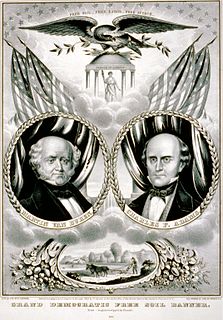
The Free Soil Party was a short-lived political party in the United States active in the 1848 and 1852 presidential elections as well as in some state elections. A single-issue party, its main purpose was to oppose the expansion of slavery into the Western territories, arguing that free men on free soil constituted a morally and economically superior system to slavery. It also sometimes worked to remove existing laws that discriminated against freed African Americans in states such as Ohio.

Slavery in the colonial history of the United States, from 1600 to 1776, developed from complex factors, and researchers have proposed several theories to explain the development of the institution of slavery and of the slave trade. Slavery strongly correlated with Europe's American colonies' need for labor, especially for the labor-intensive plantation economies of the sugar colonies in the Caribbean, operated by Great Britain, France, Spain, and the Dutch Republic.
Reparations for slavery is a proposal that some type of compensation should be provided to the descendants of slaves from the Atlantic slave trade.
WNET, virtual channel 13, is the primary Public Broadcasting Service (PBS) member television station licensed to Newark, New Jersey, United States and serving the New York City television market. Owned by WNET.org, it is sister to the area's secondary fellow PBS member, Garden City, New York-licensed WLIW and two Class A stations which share spectrum with WNET: WNDT-CD and WMBQ-CD ; through an outsourcing agreement, WNET.org also operates New Jersey's PBS state network NJTV and the website NJ Spotlight. WNET and WLIW share studios at One Worldwide Plaza in Midtown Manhattan with an auxiliary street-level studio in the Lincoln Center complex on Manhattan's Upper West Side; the two stations also share transmitter facilities atop One World Trade Center.
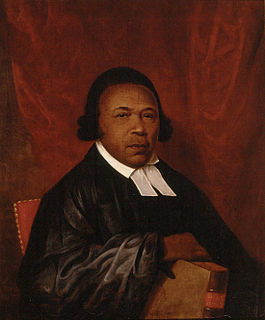
Absalom Jones was an African-American abolitionist and clergyman who became prominent in Philadelphia, Pennsylvania. Disappointed at the racial discrimination he experienced in a local Methodist church, he founded the Free African Society with Richard Allen in 1787, a mutual aid society for African Americans in the city. The Free African Society included many people newly freed from slavery after the American Revolutionary War.

The Society for the Relief of Free Negroes Unlawfully Held in Bondage was the first American abolition society. It was founded April 14, 1775, in Philadelphia, Pennsylvania and held four meetings. Seventeen of the 24 men who attended initial meetings of the Society were Quakers, that is, members of the Religious Society of Friends, a branch of Christianity notable in the early history of Pennsylvania.

African Burial Ground National Monument is a monument at Duane Street and African Burial Ground Way in the Civic Center section of Lower Manhattan, New York City. Its main building is the Ted Weiss Federal Building at 290 Broadway. The site contains the remains of more than 419 Africans buried during the late 17th and 18th centuries in a portion of what was the largest colonial-era cemetery for people of African descent, some free, most enslaved. Historians estimate there may have been as many as 10,000–20,000 burials in what was called the "Negroes Burial Ground" in the 1700s. The five to six acre site's excavation and study was called "the most important historic urban archaeological project in the United States." The Burial Ground site is New York's earliest known African-American "cemetery"; studies show an estimated 15,000 African American people were buried here.

Samuel Joseph May was an American reformer during the nineteenth century, and championed multiple reform movements including education, women's rights, and abolitionism. May argued on behalf of all working people that the rights of humanity were more important than the rights of property and advocated for minimum wages and legal limitations on the amassing of wealth. He was born on September 12, 1797, in an upper class Boston area. May was the son of Colonel Joseph May, a merchant, and Dorothy Sewell, who was descended from or connected to many of the leading families of colonial Massachusetts, including the Quincys and the Hancocks. His sister was Abby May Alcott, mother of novelist Louisa May Alcott. In 1825, he married Lucretia Flagge Coffin with whom he had five children. Author Eve LaPlante, who wrote several books about his sister Abby May Alcott and a book about Sewall ancestor, Judge Samuel Sewall is one of his direct descendants.
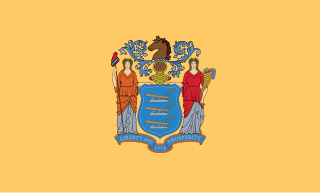
Slavery in New Jersey began in the early 17th century, when Dutch colonists imported African slaves for labor to develop their colony of New Netherland. After England took control the colony in 1664, its colonists continued the importation of slaves from Africa. They also imported "seasoned" slaves from their colonies in the West Indies and enslaved Native Americans from the Carolinas.

Stanley Earl Nelson Jr. is an American documentary filmmaker and a Macarthur "genius" fellow known as a director, writer and producer of documentaries examining African American history and experiences. He is a recipient of the 2013 National Humanities Medal from President Obama. He has won three Primetime Emmy Awards.
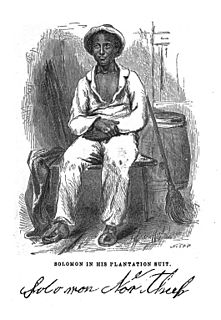
Twelve Years a Slave is an 1853 memoir and slave narrative by American Solomon Northup as told to and edited by David Wilson. Northup, a black man who was born free in New York state, details his being tricked to go to Washington, D.C., where he was kidnapped and sold into slavery in the Deep South. He was in bondage for 12 years in Louisiana before he was able to secretly get information to friends and family in New York, who in turn secured his release with the aid of the state. Northup's account provides extensive details on the slave markets in Washington, D.C. and New Orleans, and describes at length cotton and sugar cultivation and slave treatment on major plantations in Louisiana.

Michael Charles Tobias is an American author, environmentalist, mountaineer, and filmmaker. In 2004 Tobias received the Parabola Magazine Focus Award. Ingrid Newkirk, co-founder and President of People for the Ethical Treatment of Animals, described Tobias as "one of the world's great souls."

Africatown, also known as AfricaTown USA and Plateau, is a historic community located three miles (5 km) north of downtown Mobile, Alabama. It was formed by a group of 32 West Africans, who in 1860 were included in the last known illegal shipment of slaves to the United States. The Atlantic slave trade had been banned since 1808, but 110 enslaved people held by the Kingdom of Dahomey were smuggled into Mobile on the Clotilda, which was burned and scuttled to try to conceal its illicit cargo. More than 30 of these people, believed to be ethnic Yoruba and Fon, founded and created their own community in what became Africatown. They retained their West African customs and language into the 1950s, while their children and some elders also learned English. Cudjo Kazoola Lewis, a founder of Africatown, lived until 1935 and was long thought to be the last survivor of the slaves from the Clotilda.
The term 'Black' is used world wide and has different meanings in different places. It is used to describe those of African and Afro-diasporic descent. The term Black women is both a multi-faceted cultural identity and a powerful social construct with different meanings in different places.

Slavery by Another Name: The Re-Enslavement of Black Americans from the Civil War to World War II is a book by American writer Douglas A. Blackmon, published by Anchor Books in 2008. It explores the forced labor of imprisoned black men and women, through the convict lease system used by states, local governments, white farmers, and corporations after the American Civil War until World War II in the southern United States. Blackmon argues that slavery in the United States did not end with the Civil War, but instead persisted well into the 20th century. It depicts the subjugation of Convict Leasing, Sharecropping and Peonage and tells the fate of the former but not of the latter two.

Henry Louis "Skip" Gates Jr. is an American literary critic, teacher, historian, filmmaker and public intellectual who currently serves as the Alphonse Fletcher University Professor and Director of the Hutchins Center for African and African American Research at Harvard University. He discovered what are considered the earliest known literary works of African-American writers, and has published extensively on appreciating African-American literature as part of the Western canon.
Travis Triangle is a narrow green space in the Murray Hill/Flushing neighborhoods of Queens, New York City. It is formed by the separation of Murray Street and Murray Lane, both of which were named after the Murray family, which owned land on the site of these streets from the late colonial period through the early 19th century. In 1932, New York City's Board of Aldermen passed a resolution to name this site Travis Triangle in honor of local American Civil War veteran Ira Underhill Travis (1839-1921), who fought under the name Ira Wilson, in the 11th New York Volunteer Infantry Regiment also known as Colonel Elmer E. Ellsworth’s Zouaves.
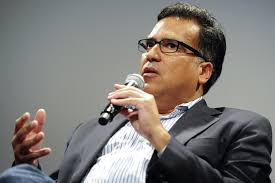
Phillip Rodriguez is an award-winning documentary filmmaker and veteran content provider for PBS. His last four films for public television have been broadcast in primetime to wide acclaim.

The National Memorial for Peace and Justice, informally known as the National Lynching Memorial, is a national memorial to commemorate the victims of lynching in the United States. The memorial is intended to acknowledge past racial terrorism and advocate for social justice in America. Founded by the non-profit Equal Justice Initiative, it opened in downtown Montgomery, Alabama on April 26, 2018.
















